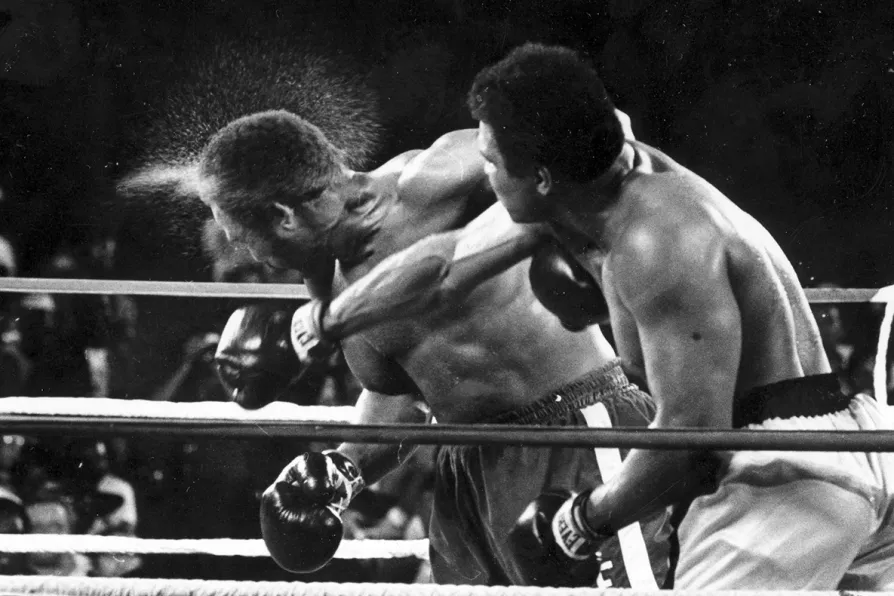
 Perspiration flies from the head of George Foreman as he takes a right from challenger Muhammad Ali in the seventh round in the match dubbed Rumble in the Jungle in Kinshasa, Zaire on October 30, 1974
Perspiration flies from the head of George Foreman as he takes a right from challenger Muhammad Ali in the seventh round in the match dubbed Rumble in the Jungle in Kinshasa, Zaire on October 30, 1974
“ATTENTION! Stop talkin’ now!”
These were the opening words of Muhammad Ali’s impromptu post-fight press conference, soon after producing the second “I shook up the world” moment of his long career.
His first such moment had come a decade previously with his victory over Sonny Liston in Miami to become the youngest heavyweight world champion at that time. This second one had come after his stunning victory over an in-prime, fearsomely fearsome George Foreman in Kinshasa, Zaire (now the Democratic Republic of the Congo) on October 30 1974.

The Congolese independence leader’s uncompromising speech about 80 years of European colonial brutality and injustice went round the world in 1960, and within months, he had been executed by Belgian and CIA-backed forces, writes KEITH BARLOW

JOHN WIGHT tells the riveting story of one of the most controversial fights in the history of boxing and how, ultimately, Ali and Liston were controlled by others











